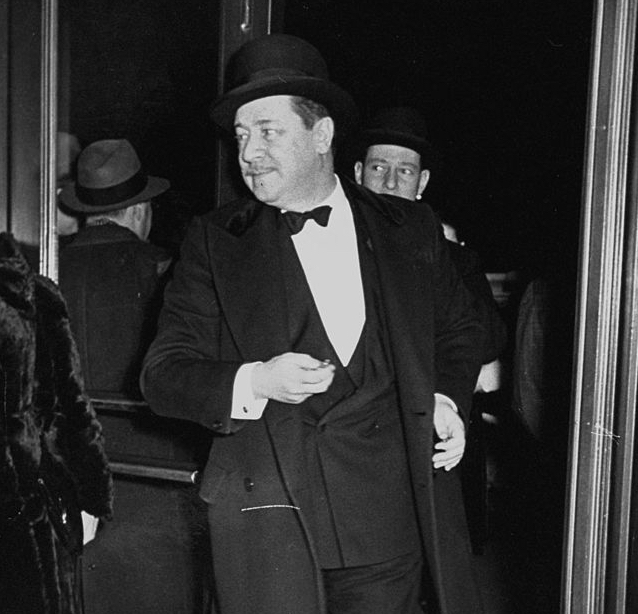In today’s Wall Street Journal “Sightings” column, I consider Robert Benchley’s work as a drama critic. Here’a an excerpt.
* * *

Few things are so fleeting as the fame of a professional humorist. In the ’20s and ’30s, Robert Benchley was one of America’s best-known comic writers, a founder of the Algonquin Round Table who published essay collections with facetious titles like “My Ten Years in a Quandary, and How They Grew” that made him at least as popular as James Thurber. Indeed, a few of his one-liners (“In America there are two classes of travel—first class, and with children”) remain in circulation to this day. But he was also a neurotic self-doubter with a deadly taste for booze, and therein lay his downfall: When Hollywood discovered that he could play his amiably fuddled self on screen, first in comic shorts like the Oscar-winning “How to Sleep” (1935) and then in well-paid supporting roles in such feature films as Alfred Hitchcock’s “Foreign Correspondent” (1940) and Fred Astaire’s “The Sky’s the Limit” (1943), he stopped writing, started drinking in self-devastating earnest, and died of cirrhosis of the liver in 1945. Today Benchley is remembered almost entirely for his films, and his essays are largely forgotten.
Even less well remembered is that from 1920 to 1940, Benchley simultaneously held down a day job as a working drama critic, first for the old Life magazine in its pre-Luce incarnation and then, from 1929 to 1940, as the regular drama critic of the New Yorker. Nor was there anything facetious about his reviews: Benchley covered the Broadway premieres of everything from fluffy musicals to the tragedies of Eugene O’Neill….
What is far from surprising is that when Benchley wrote about light comedy, he did so both amusingly and with perfect taste, distinguishing only between the brilliant and brainless. He loved the early stage appearances of the Marx Brothers (“We may be doing them a disservice by boiling over about them like this, but we can’t help it if we feel it, can we?”). He went like a laser-guided drone to the money moment in “Girl Crazy”: “George Gershwin has written some good numbers, and Ira, his brother, has fitted some excellent words to them, and a young lady named Ethel Merman does wonder with three of them, sustaining one splendid note in ‘I Got Rhythm’ over a period of time usually allotted to the trumpets in orchestration.” Bull’s-eye!…
* * *
Read the whole thing here“How to Sleep,” written by and starring Robert Benchley and directed by Nick Grinde:
